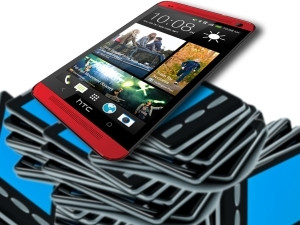
Taiwanese cellphone maker HTC seems set to go the same way as BlackBerry and Nokia by the end of next year, as it battles to gain market share and cuts costs.
After indicating during its second quarter conference call that it would trim expenses in areas such as components and manufacturing, the company has now retrenched 20% of its US workforce, according to several media reports.
There is no indication as to whether its bid to boost its margin by cutting costs will affect the local entity, as HTC was unable to respond to specific questions on SA this morning. However, ITWeb understands HTC SA is currently a small team.
Its official statement is that the US entity wants to streamline its organisation "after several years of aggressive growth". It says realigning its human resources against "key strategic initiatives" will help HTC more effectively advance into "a new stage of growth and innovation".
"This is a hard decision that has direct impact on people who have contributed to the growth HTC has experienced the past several years.
"However, to achieve our long-term goals as a business and return maximum value to our shareholders, this is a necessary step to drive ongoing innovation, ensure our ability to create strong products like the HTC One, and forge strong customer relationships that solidify our future."
HTC says it will continue to hire in strategic areas.
Strong competition
The company's most recent results show its top line, profit and margins were lower year-on-year after it took a hit clearing out old inventory. Its operating margin shank from 9%, a year ago, to 1%, and is expected to come in at between 0% and negative 8% in the third quarter.
During the conference call, CEO Peter Chou said HTC One has been performing "well" so far and the company would continue to push to gain momentum. The goal is to establish a stronger HTC product franchise brand, he said.
Chou said the company would launch a series of mid-tier products that would aid it in regaining momentum and market share in that segment. He pointed out that the company had suffered a bit in that area due to "intensive" competition.
IDC notes that, earlier this month, HTC unveiled the HTC Desire 601 and HTC Desire 300 smartphones.
"HTC has had a challenging 2013," it said. "External reasons and internal problems have affected the vendor's performance. External factors and fierce competition have created a more crowded smartphone segment, as all vendors are focusing on the segment."
The HTC One, released earlier this year, was delayed on launch because of a camera component shortage, in addition to a lack of brand awareness due to modest marketing investments by the company, says IDC.
The launch of the new phones "proves how determined the company is to get back into the game," says IDC.
It would take some time for HTC to grow big, said Chou. He said it is important that the company stays focused and keeps working on innovations, efficiencies and competitive costs.
CFO Chialin Chang added that the company expected to return to profitability soon.
Ripe for the picking
World Wide Worx MD Arthur Goldstuck says he would be "amazed" if HTC is not bought out by the end of next year.
Struggling handset maker BlackBerry, worth just a bit more than $5 billion, recently put itself up for sale, while Microsoft bought out the beleaguered Nokia's device unit for a modest EUR5.44 billion.
"HTC will almost certainly go that way too," says Goldstuck. He believes the entire cellphone market will be completely different by the end of next year.
Goldstuck says the Taiwanese cellphone maker is a prime acquisition target. While it makes great devices, it is not challenging for any kind of market dominance, he adds.
Although the US tech media is "gaga" over the HTC One - its flagship device - this has not translated into broader market share, comments Goldstuck. He notes the company has been struggling for a long time and has no idea how to reach the market.
According to IDC, HTC has 0.4% of the Windows phone market, behind Nokia and Samsung. The research company does not list HTC among the top five Android makers, indicating its market share is less than 5% globally.
Locally, there has been a sense for a long time that the company is not making inroads into SA, says Goldstuck.
HTC needs deep pockets and an effective marketing strategy in order to be a contender, he explains. Potential buyers could include Sony, LG, Google, and any other Android manufacturer apart from Samsung.
Share